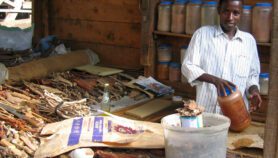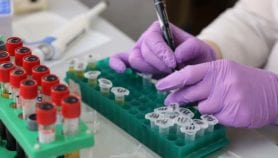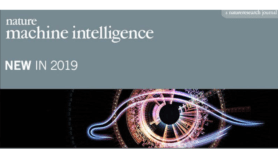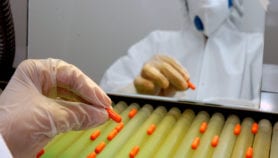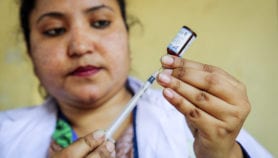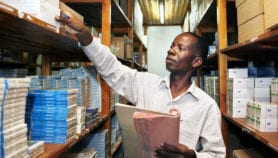By: Aisling Irwin
Send to a friend
The details you provide on this page will not be used to send unsolicited email, and will not be sold to a 3rd party. See privacy policy.
A Senegalese university has become the first institution in the developing world to subject itself to a pioneering review designed to evaluate its ability to conduct research ethically and negotiate fair deals with international collaborators.
The review, known as the Research Fairness Initiative (RFI), has uncovered several gaps — in the university’s safeguarding of Intellectual Property Rights (IPR) for example, and in its protection of scientific materials being transferred out of the country.
But the RFI’s leader says it will ultimately support Senegal’s push to improve research quality.
Meanwhile, two European organisations — a funder and a university — have also taken on the evaluation.
The Université Alioune Diop de Bambeye (UADB) began assessing its research fairness in 2016 and is due to publish the results next month. Two further Senegalese organisations — CEA-SAMEF, which focusses on child health, and IRESSEF, a focal point for HIV research in West Africa — are finishing their assessments.
All three organisations discovered they have no protocols governing the transfer of biological specimens out of the country. They also found weaknesses in measures such as IPR and tech transfer that enable the university to share in the benefits of research, as well as in negotiating contracts and fair budgets.
The UADB found it had no legal capability to negotiate a fair research contract with an international partner.
“each institution can ask for collaborators to respect the different indicators of its RFI report which will serve as a guide during negotiations”
Soukèye Dia Tine
Soukèye Dia Tine, director for Financing Research and Technological Development for the Ministry of Higher Education, Research and Innovation, coordinated the review for all three institutions. In a presentation written for the Geneva Health Forum last month, she said the review had revealed additional issues — for example, that Northern collaborators did not mention principles of research fairness in their contracts despite signing up to them back home.
Dia Tine says the project was onerous but useful. “It was very hard work. “But it’s a good project and … we hope to do this for all Senegalese institutions of research”.
She says that in future “each institution can ask for collaborators to respect the different indicators of its RFI report which will serve as a guide during negotiations”.
Carel IJsselmuiden, executive director of the Council on Health Research for Development (COHRED) which designed the Initiative, says the initiative is an attempt to turn words into action when it comes to the unfairness that plagues international collaborations. Sometimes poor countries find they are serving simply as laboratories; or complain that indigenous scientists are ignored, poorly recompensed, treated merely as data-collectors and omitted from authorship of papers.
IJsselmuiden says the Senegalese reviews have revealed some “low hanging fruit … opportunities to make rapid improvements in some policies and practices”.
For example, Senegal’s Ministry is now planning to rapidly produce a generic agreement for the transfer of materials.
Robert Terry, research policy manager for TDR, a Geneva-based programme supporting research and training in tropical diseases, says that the UADB report produced a “daunting list of things to tackle which could be disheartening. “It was brave of them to do it,” he said.
TDR became the first organisation in the developed world to publish its own RFI assessment earlier this year. The Institute of Hygiene and Tropical Medicine at the Nova University of Lisbon is also due to publish its RFI review findings.
Terry told the Forum that the process had revealed “some things we’d never even thought about before,” such as ensuring a project buys local supplies, where possible, instead of importing it. It also found it could do more to help grantees improve their budgeting, reduce projects’ environmental impact, and better monitor progress towards the Sustainable Development Goals (SDGs).
“Let’s be honest, we don’t often think ‘let’s take a step back and review all of our administration’,” explained Terry. “This actually allows you to do that in a systematic way and it is extremely valuable.”However, the process was “an intensive period”, he said. Organisations also needed to consider the reputational risk of publishing such a report. And producing it meant cajoling reluctant staff who “see this as a form of evaluation and get really nervous,” added Terry.






